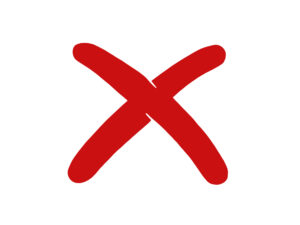Is Max Factor an ethical brand?
A low ethical score is assigned to Max Factor by The Good Shopping Guide. The Coty Inc./JAB Holding Company owns Max Factor. Unfortunately, as indicated by its low Good Shopping Guide Ethical score in our Ethical Make Up Ratings Table, this brand currently does not adhere to our fundamental standards. For this brand to qualify for our Ethical Accreditation, it must make a number of changes.
In what areas does Max Factor perform poorly?
Max Factor ranks poorly in our Animal Welfare research criteria, which may be concerning to those who care particularly about animal testing. Coty, the parent corporation, has issued a statement on its position regarding animal testing that is a little ambiguous and vague. Though this statement does claim that Coty does “not test […] products on animals”, they also mention that “[s]ome governments or agencies still require the testing of certain products on animals, in accordance with their local legal and regulatory requirements.” This raises some questions about their viewpoint. (It should be noted that whilst Max Factor is not accredited with the Leaping Bunny logo, one of Coty’s other brands, COVERGIRL, is.)
The brand is also not accredited by any other independent vegan, vegetarian, or organic authority.
A case covered by The Associated Press may be one of the most terrible ethical problems Max Factor is involved in. Numerous instances of violence against women have occurred in the palm oil plantations of Malaysia and Indonesia. These occurrences involved being subjected to harmful chemicals as well as physical and sexual assault. Some of these women were as young as 16. At one plantation, a woman said that years of handling hazardous pesticides without wearing protective gear had left her with fevers, nosebleeds, and coughing. This woman’s daily income was only $2, therefore she could not afford to go to the doctor. According to reports, Coty and other well-known cosmetics businesses use palm oil made by women who have endured severe human rights violations.
Please be aware, that this article from The Associated Press contains some very upsetting details.
In what areas does Max Factor perform well?
Coty’s Sustainability Report for 2021 outlines a variety of objectives and provides evidence that they have been met. One example of a target from Coty is to “[s]end zero waste to landfill and recycle 80% of waste generated by our factories and distribution centers by 2030.” Coty evidences their progress so far and their Environmental Report states that “[l]ess than 0.5% of factories and distribution centers’ waste was sent to landfills. Over 74% of waste was either reused, recycled or composted.” Many other targets and records of progress can be found in Coty’s publicly available Environmental Report.
Furthermore, neither Max Factor nor either of its parent companies has been found to have investments in, affiliations with, or involvement in the nuclear or armaments industries.
How can Max Factor improve its ethical rating?
The score for Max Factor by The Good Shopping Guide is determined by 15 ethical standards. Max Factor needs to account for and resolve a number of ethical challenges, including its involvement in some horrific Human Rights abuses.
Ethical performance in category
GSG score
GSG category benchmark
Ethical Rating
Environment
-
Environmental Report
Good
-
Genetic Modification
Poor
-
Organic
Poor
-
Nuclear Power
Good
-
Fossil Fuels
Good
Animal
-
Animal Welfare
Poor
-
Vegetarian/Vegan Verified
Poor
People
-
Armaments
Good
-
Irresponsible Marketing
Good
-
Political Donations
Poor
Other
-
Ethical Accreditation
Poor
-
Public Record Criticisms
Poor
-
Public Record Criticisms+
Poor
= GSG Top Rating = GSG Middle Rating = GSG Bottom Rating
